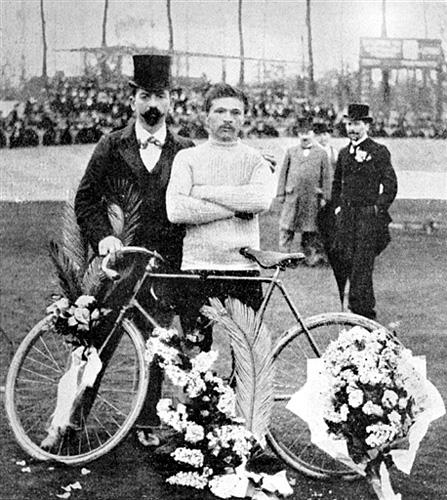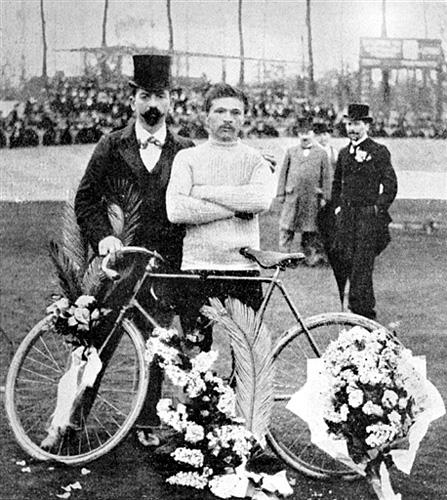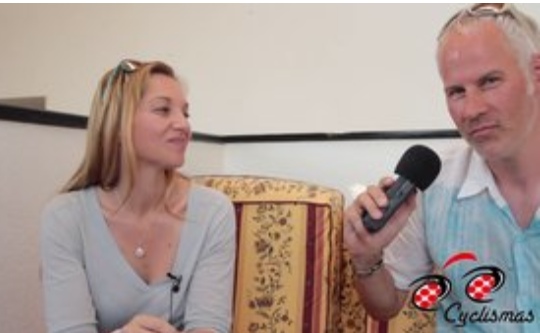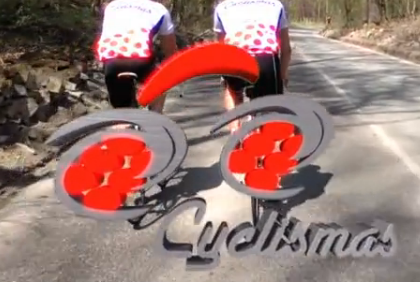With the Giro d’Italia finally having joined the other two Grand Tours in having its past rewritten, it’s time to take a trip down memory lane to the first time a Grand Tour winner was stripped of his victory.
* * * * *
It was in the early afternoon of the penultimate Saturday of July. The year was 1904. The city was Paris, the place the Parc des Prince. A crowd – thousands – had gathered to cheer the arrival home of the remaining riders in the Tour de France. And to crown victorious Maurice Garin: the defending champion and the man who had led the race from start to finish. The crowd cheered and roared as Garin raced into the Parc des Prince. They cheered and they roared as Hippolyte Aucouturier won the final stage, his fourth victory in the race’s six stages. All of Paris – all of France – seemed to have been brought alive by a bicycle race, a bicycle race that had enflamed passions for three weeks. And the fans in the Parc des Princes that Saturday afternoon, they went home happy and content, smiles on their faces and joy in their hearts. They had seen history being made.
Except they hadn’t. In December, less than five months later, the Union Vélocopédique de France (the forerunner of today’s FFC) issued a statement: Henri Cornet was the winner of the 1904 Tour de France. The results of all six stages were rewritten and the stages the world had thought to have been won by Garin, Aucouturier and Lucien Pothier were instead credited to Michel Frédérick, Antoine Faure, Cornet, François Beaugendre and Jean-Baptiste Dortignacq (two). Of the original top-ten finishers in the Tour, only four survived: Cornet (elevated from fifth to first), Dortignacq (originally sixth, now second), Aloïs Catteau (eighth, now third) and Jean Dargassies (from tenth to fourth). The others – and more – had all been disqualified.
The fans could hardly have been surprised by this. L’Auto had signalled that there were issues with the result of the race:
Maurice Garin won the Tour de France for the second time, followed only seconds later by Pothier, who took second place as he did last year. In third place was another Garin, one of Maurice’s younger brothers. We have long known the ardour with which the La Française company, whose machines are used by these three riders, contest bicycle races, especially the great road races. While complimenting La Française on its great success, which its three champions would certainly have achieved by valour alone, I have a cordial reproach to submit: to whit, that they entrusted their organisation at the Tour de France to individuals too involved in previous, regrettable incidents at road races, lacking the calm, impartiality and clarity of vision to understand the rising public distaste caused by deception during road races.”
That was where Henri Desgrange, boss of L’Auto and father of the Tour, had wanted to leave the matter: a gentle reproach, a warning not to do the same again. And perhaps, had Desgrange had the control over cycling he imagined he had, or had the ‘regrettable incidents’ to which he referred happened only at the Tour, well perhaps then today the history books would still say that Maurice Garin won the second edition of the Tour de France.
But the boss of L’Auto had no such control. And the cheating seen at the Tour de France had also been seen at other races. Tack attacks, letting the train take the strain, hanging out of motorcars, beating up opponents, these were all too familiar at bike races in France in 1904. Already the UVF had had to rule on infractions of the rules during Bordeaux-Paris, rewriting the results and disqualifying the first four finishers. At the Tour de France, they felt they had no choice but to show a firm hand.
For L’Auto, nothing could excuse the whole-scale rewriting of the history books caused by the UVF’s decision. Desgrange was, to put it mildly, a little bit annoyed:
With full knowledge of the facts, it is extremely difficult to grasp whether the heavy penalties meted out to the leading riders were motivated by sound reasoning, since [the Union Vélocopédique de France’s] decision was announced without indicating which documents formed its basis. It is not unreasonable to believe that public opinion will demand that the Union should provide it.
“We approached the Union as the supreme power in cycling, entirely independent and uniquely competent in the last resort to intervene in a case as sensitive as this – a sporting event that for a month aroused unprecedented feeling among the public.”
Despite having already called into question the very future of the Tour de France – suggested that the level of cheating during the race would mean that Tour had no future – Desgrange tried to argue that, by disqualifying riders, the UVF had dealt far too harshly with what were, now, in his view, mere misdemeanours:
I followed two complete stages in person and confirm that no breach was committed that would justify any such measure against any rider from these two marques [La Française, Garin’s team, and Alcyon, the team of Aucouturier]. I should add that the file given to the Union by the commissaires contained no material to justify such severe penalties.”
A couple of riders – whose disregard of the rules was too flagrant even for the father of the Tour to ignore – should, Desgrange agreed, have been disqualified: particularly Pothier, Pierre Cheavlier and Ferdinand Payan. The others, though, Desgrange felt deserved no more than pecuniary punishment: fines and warnings.
But he was overruled.
History was rewritten.
* * * * *
Nine people in ten would, today, tell you that Henri Cornet won the 1904 Tour de France. As would the majority tell you that it was Marino Lejarreta and not Angel Arroyo who won the 1982 Vuelta a España. Many of us might still be having difficulties thinking of Oscar Pereiro as the winner of the 2006 Tour de France, and most of us will probably have difficulty believing that Andy Schleck won the 2010 Tour and that Michele Scarponi won the 2011 Giro d’Italia. But, in time, if we repeat these facts often enough, we will eventually come to believe them. In the same way that we believe that Henri Cornet won the 1904 Tour de France.
















No Comments